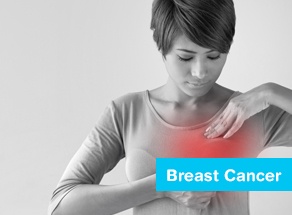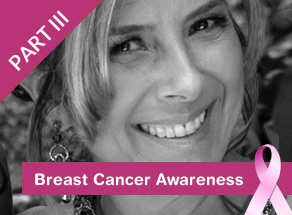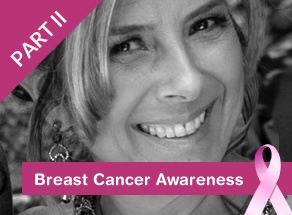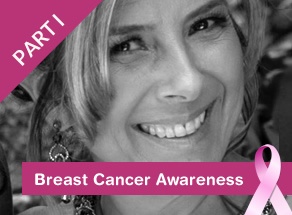Preventive Care
The Importance of Breast Cancer Research
02/02/2015 09:59am | 7673 viewsBCRF is a nonprofit organization committed to achieving prevention and a cure for breast cancer. We provide critical funding for cancer research worldwide to fuel advances in tumor biology, genetics, prevention, treatment, metastasis and survivorship.
Since their founding in 1993 by Evelyn H. Lauder, BCRF has raised more than half a billion dollars for lifesaving research. Through a unique and streamlined grants program, we seek out the brightest minds in science and medicine and give them the necessary resources to pursue their best ideas. As a result, researchers are able to make discoveries and design new approaches to address all aspects of breast cancer—and do so in record time.
Preventive Care
Latinas and Breast Cancer: What You Need to Know
01/02/2015 12:18pm | 16222 viewsMaria Medina, a breast cancer survivor, used to travel to the north side of Chicago by bus to participate in breast cancer education programs. However, it became difficult for her to keep up with the schedule and the long travel times, and eventually had to stop attending her breast cancer support group. When she did, she lost access to a wealth of information about the disease she was combating, and the vital support that comes from being with fellow patients and survivors.
Preventive Care
Together We Can Defeat Cancer
14/04/2015 10:14pm | 8008 viewsOf all the cancers, breast cancer is the primary cause of death for Latino women in the U.S., while colorectal cancer is the second most common among men and women. With early detection and treatment, survival rates skyrocket.
Preventive Care
Bridging The Gap In Breast Cancer
29/04/2015 10:52am | 8109 viewsBreast cancer research has fueled advances in early detection, prevention and treatments that have had a significant impact on many women. In the U.S. alone, there are nearly three million breast cancer survivors today; however, in spite of this trend, not all women experience the same good fortune. Disparities in breast cancer health, care and survival still exist across various populations, in particular the Hispanic community.
Preventive Care
Latina Breast Cancer – Key Differences in Current Behavior
29/03/2015 09:30am | 7624 viewsA few weeks ago we released some research on Latina awareness of issues surrounding breast cancer as part of our commitment to the Passionate Pursuit of Prevention campaign being undertaken by Healthy Hispanic Living and its partners. We found that, overall, Latinas are less concerned about getting breast cancer than their non-Hispanic white cohorts. Other issues such as diabetes, heart disease and high blood pressure were more top-of-mind for them than the risk of getting breast cancer.
We wanted to see if these lower levels of concern among Latinas also translated into fewer preventative behaviors and found some significant differences between Latinas and other ethnic groups as well as among different segments within the Latina community.





